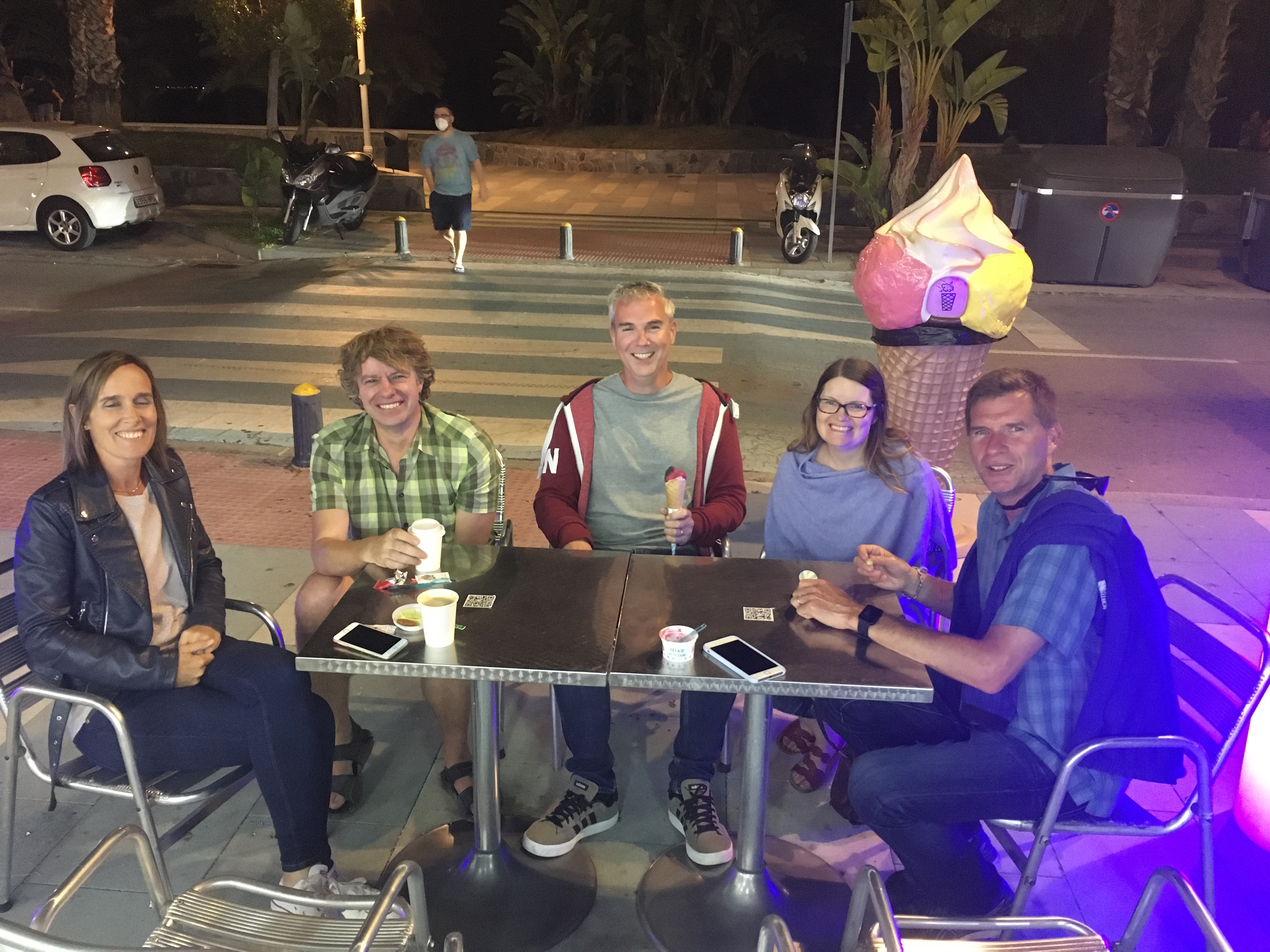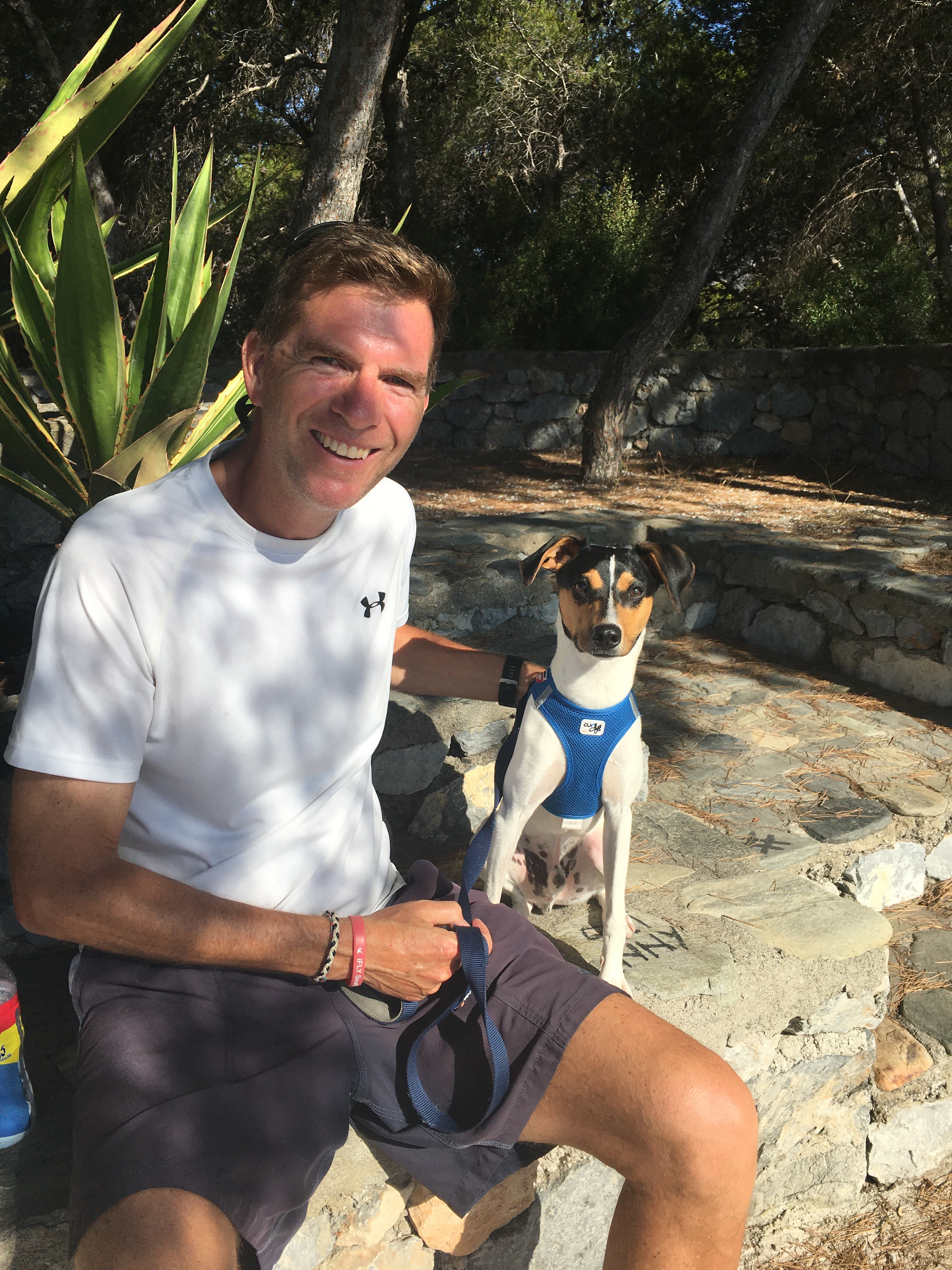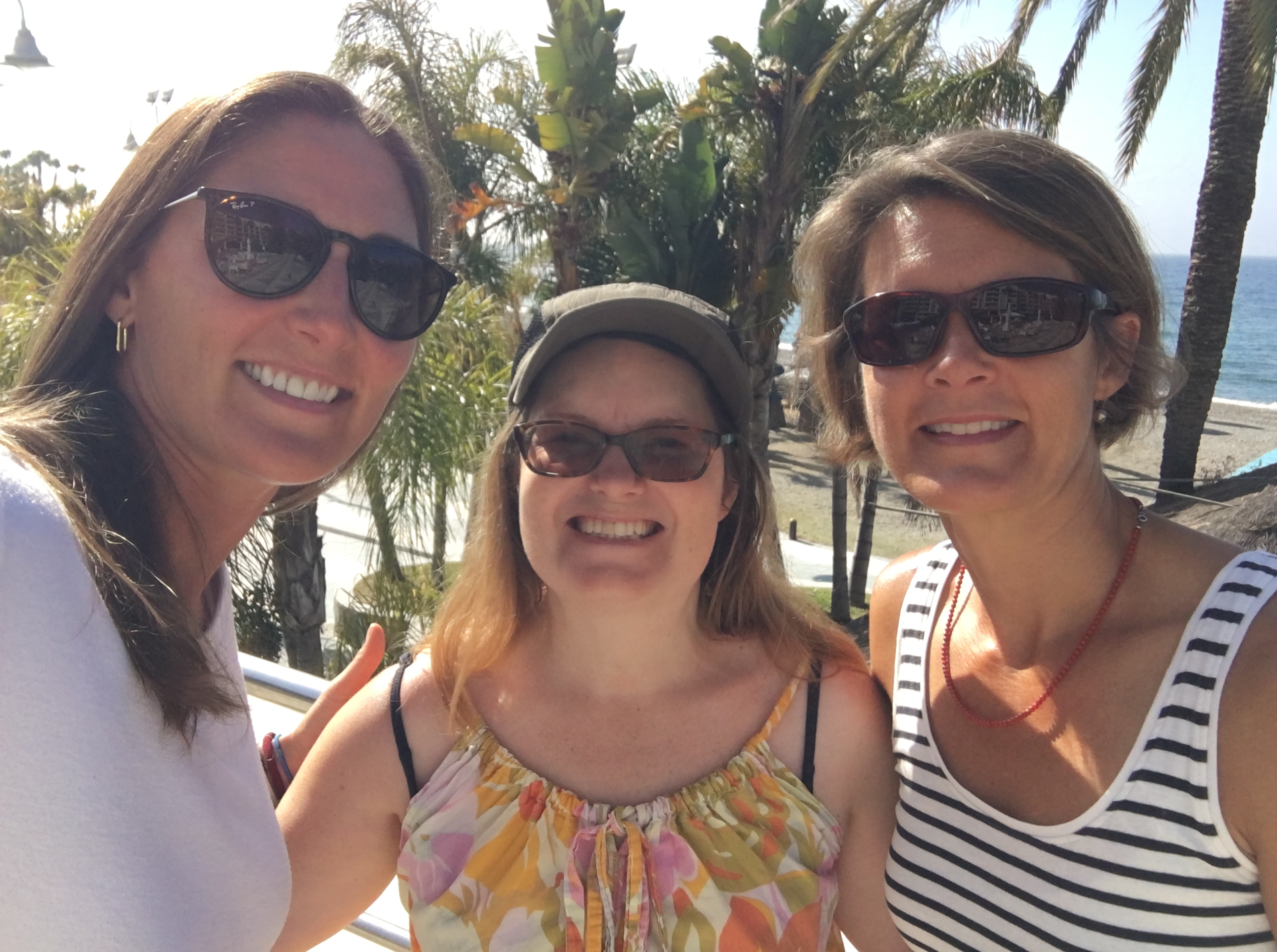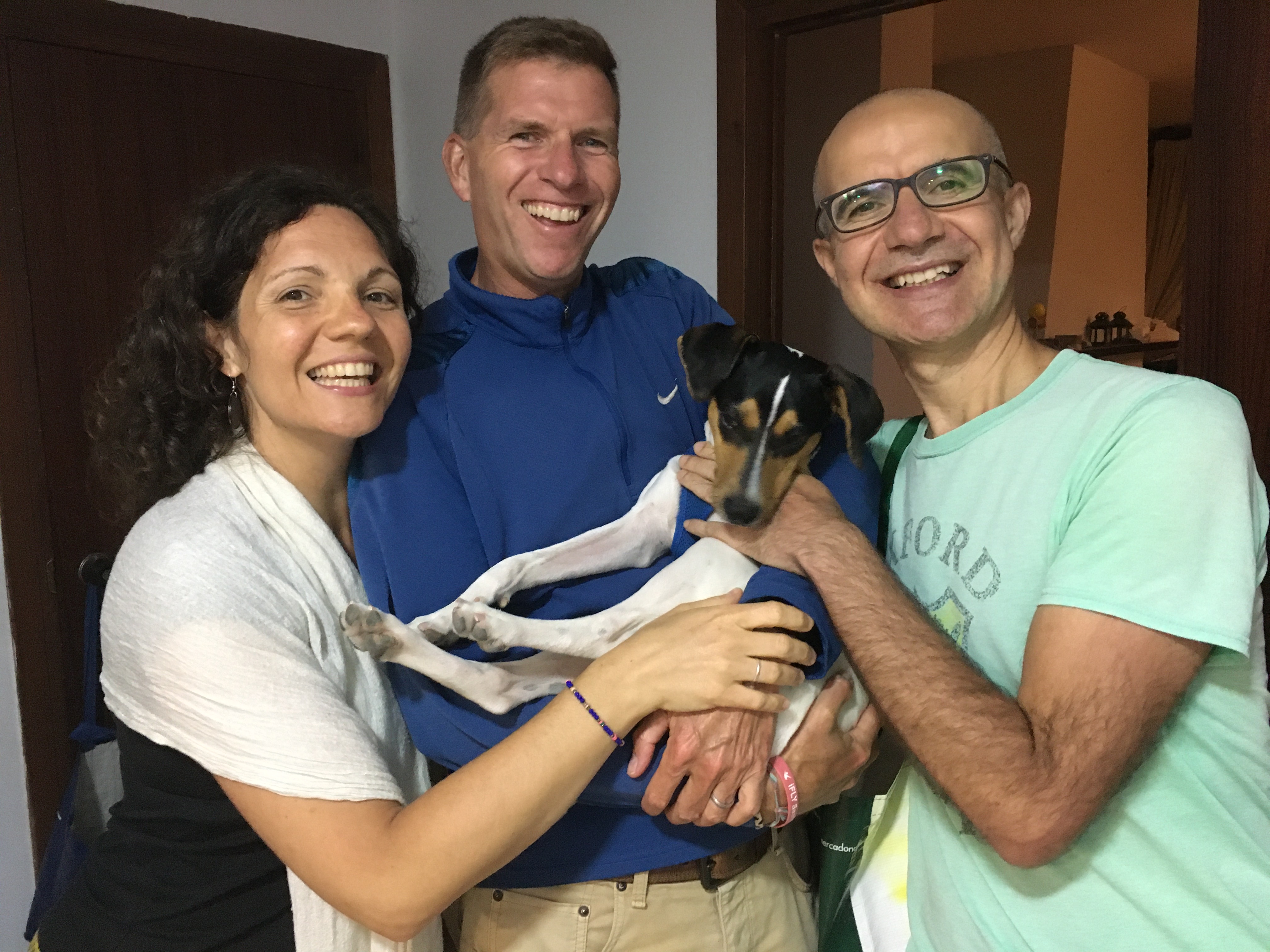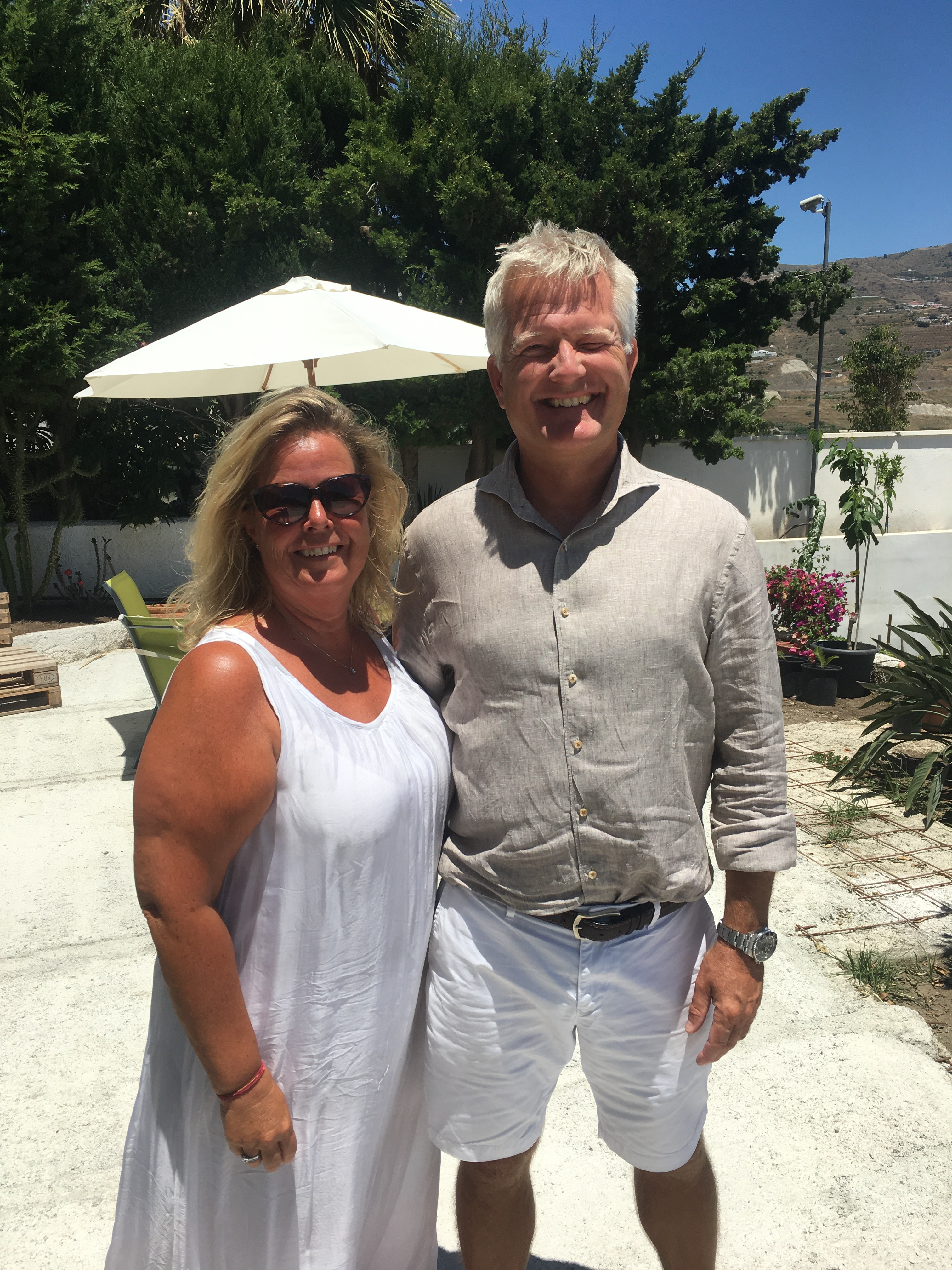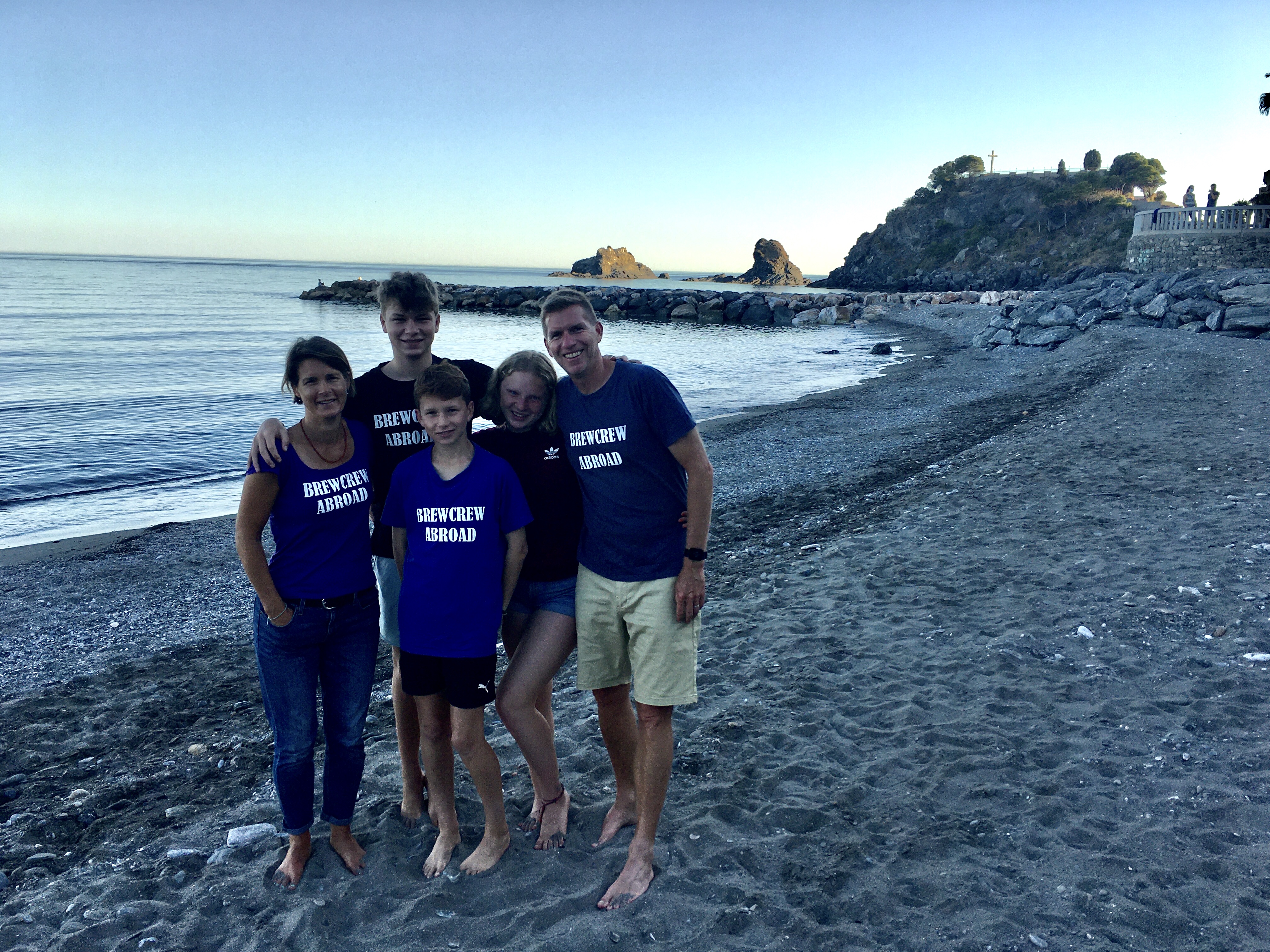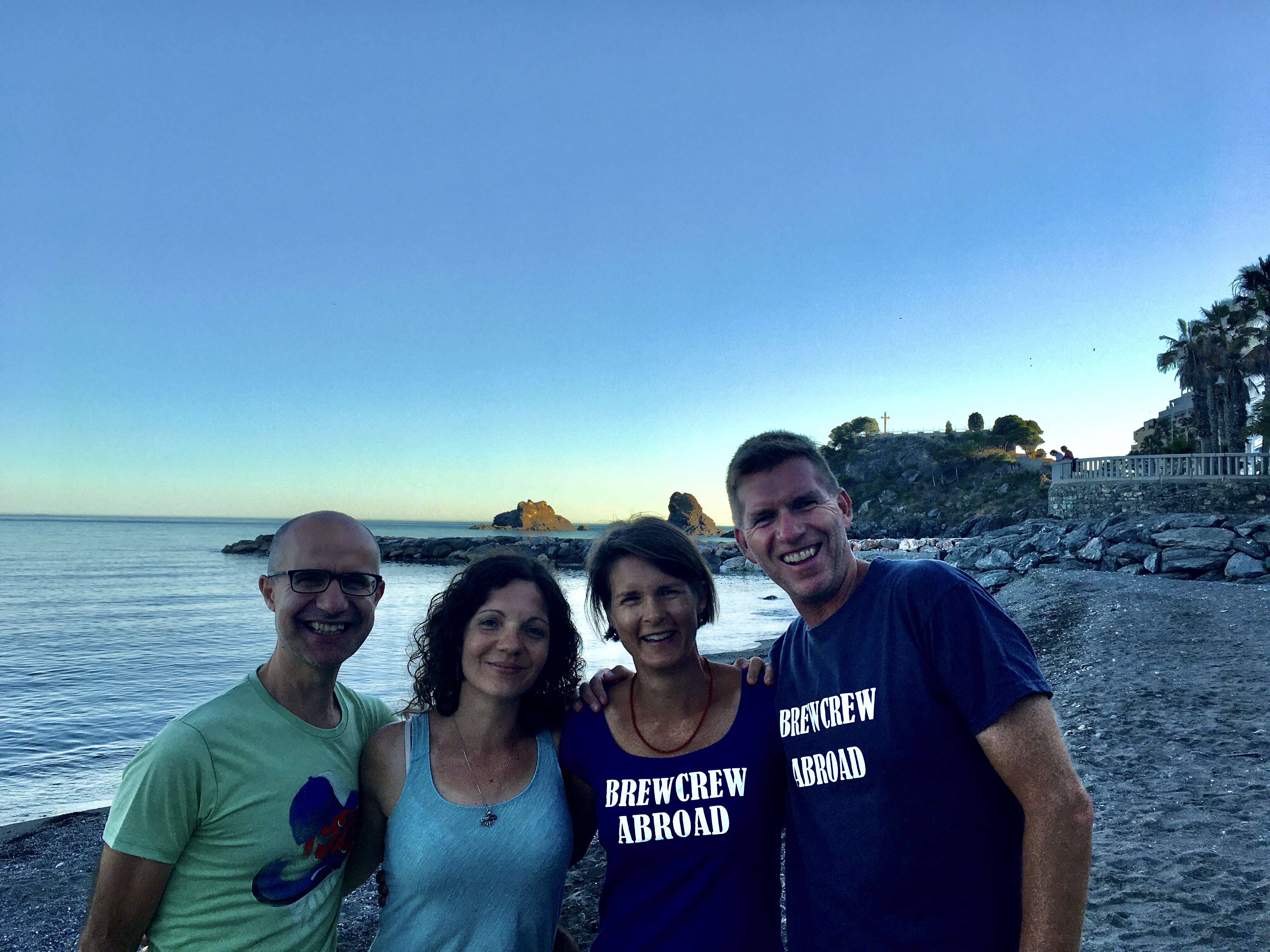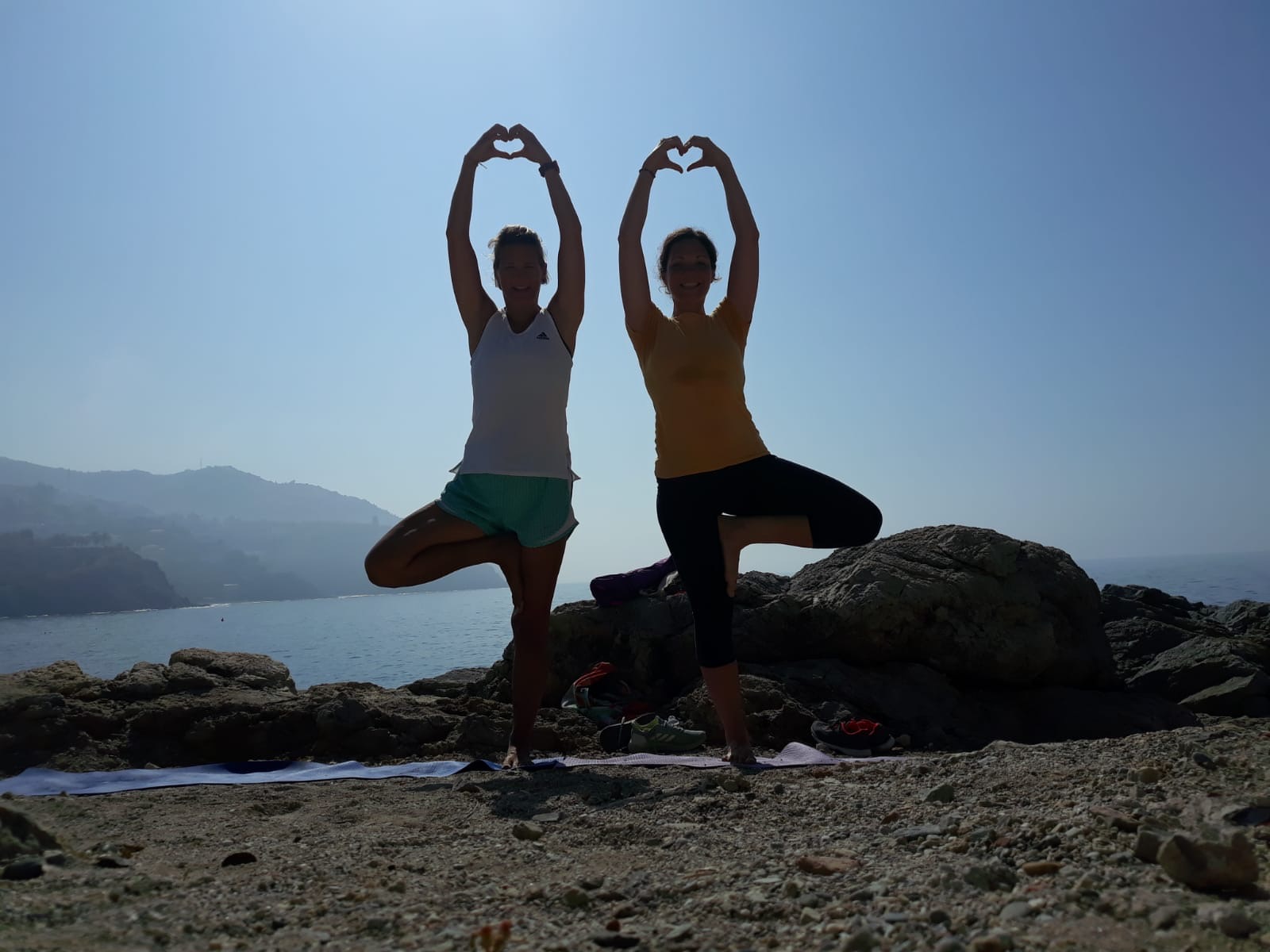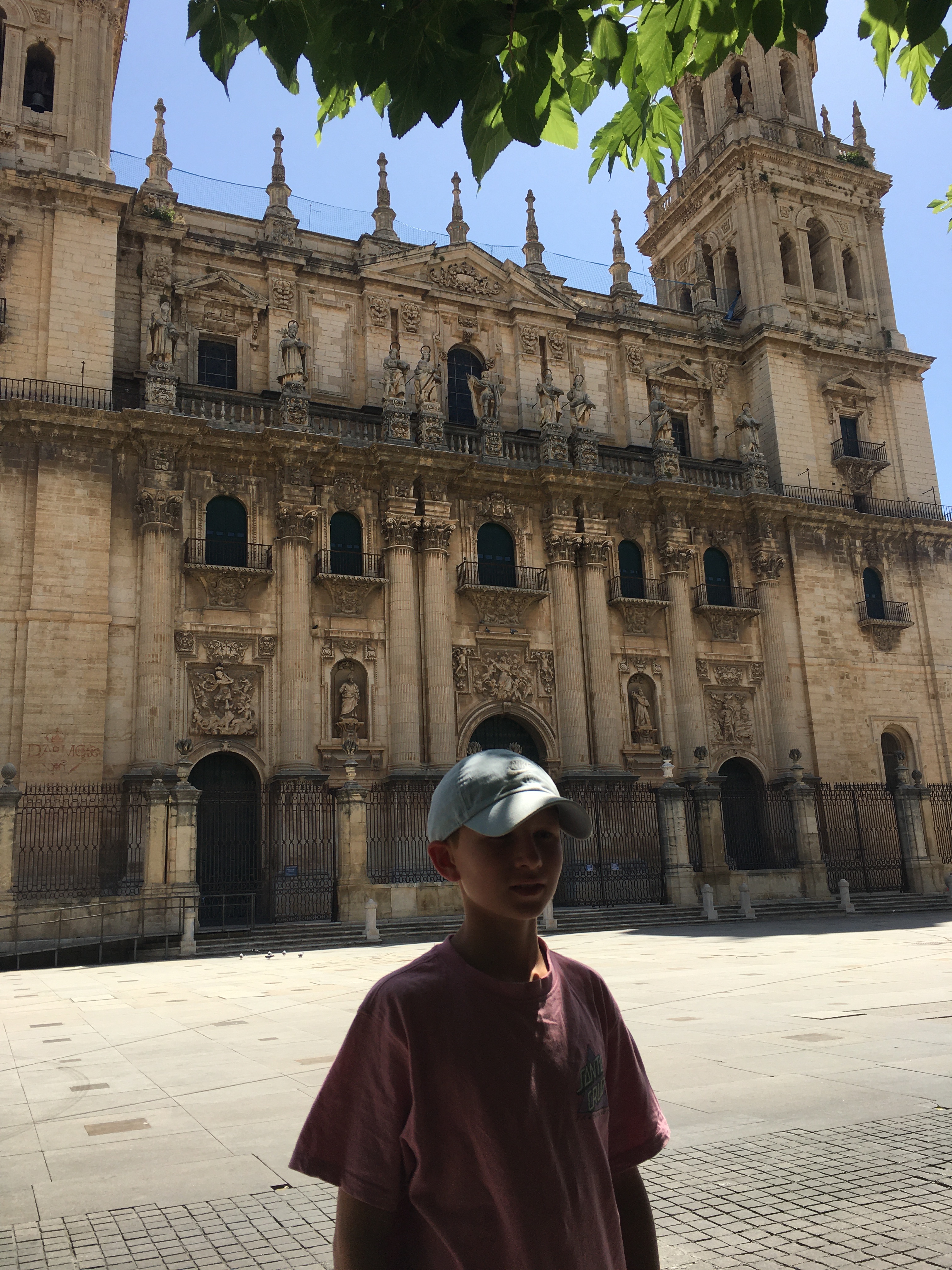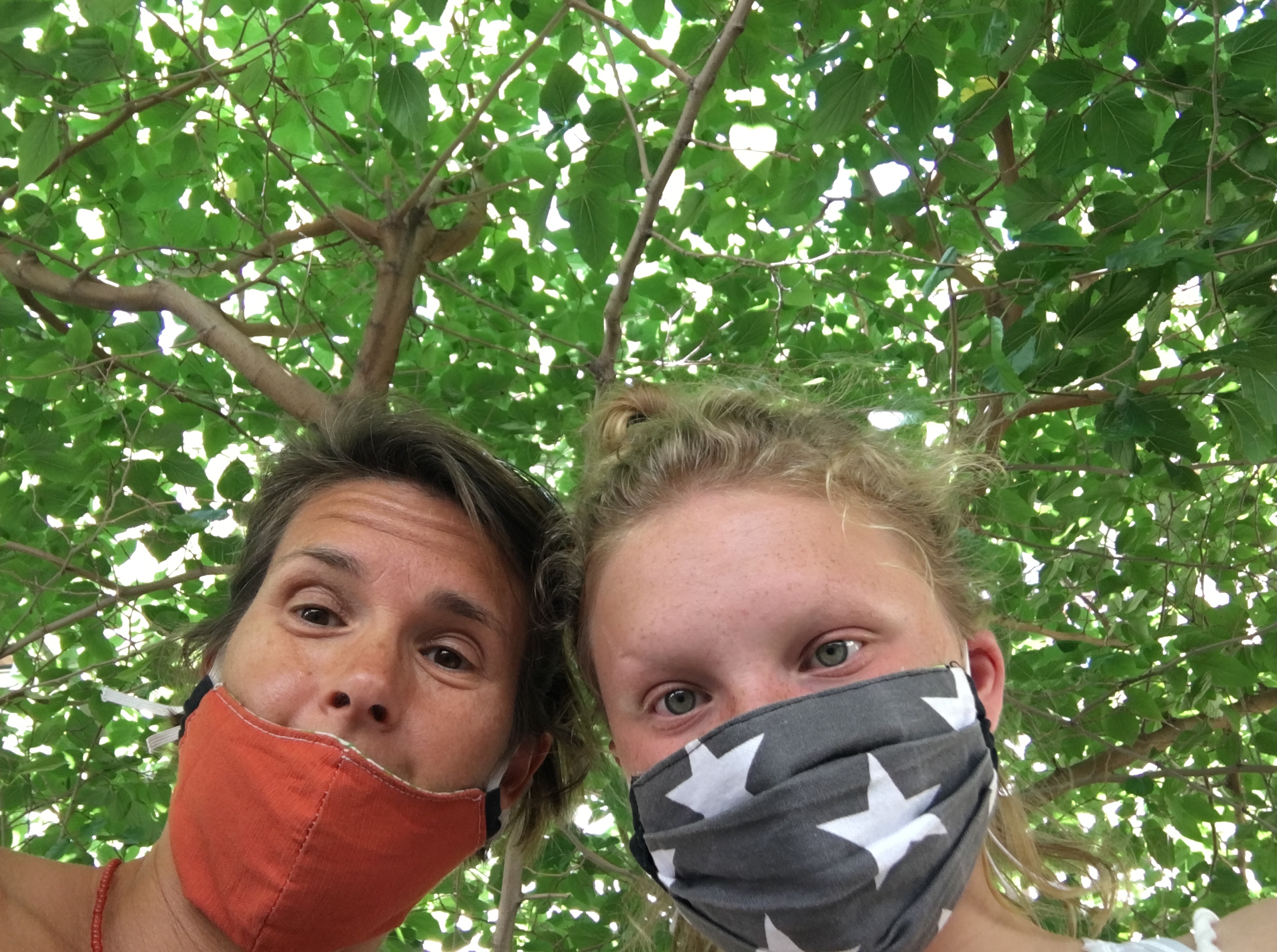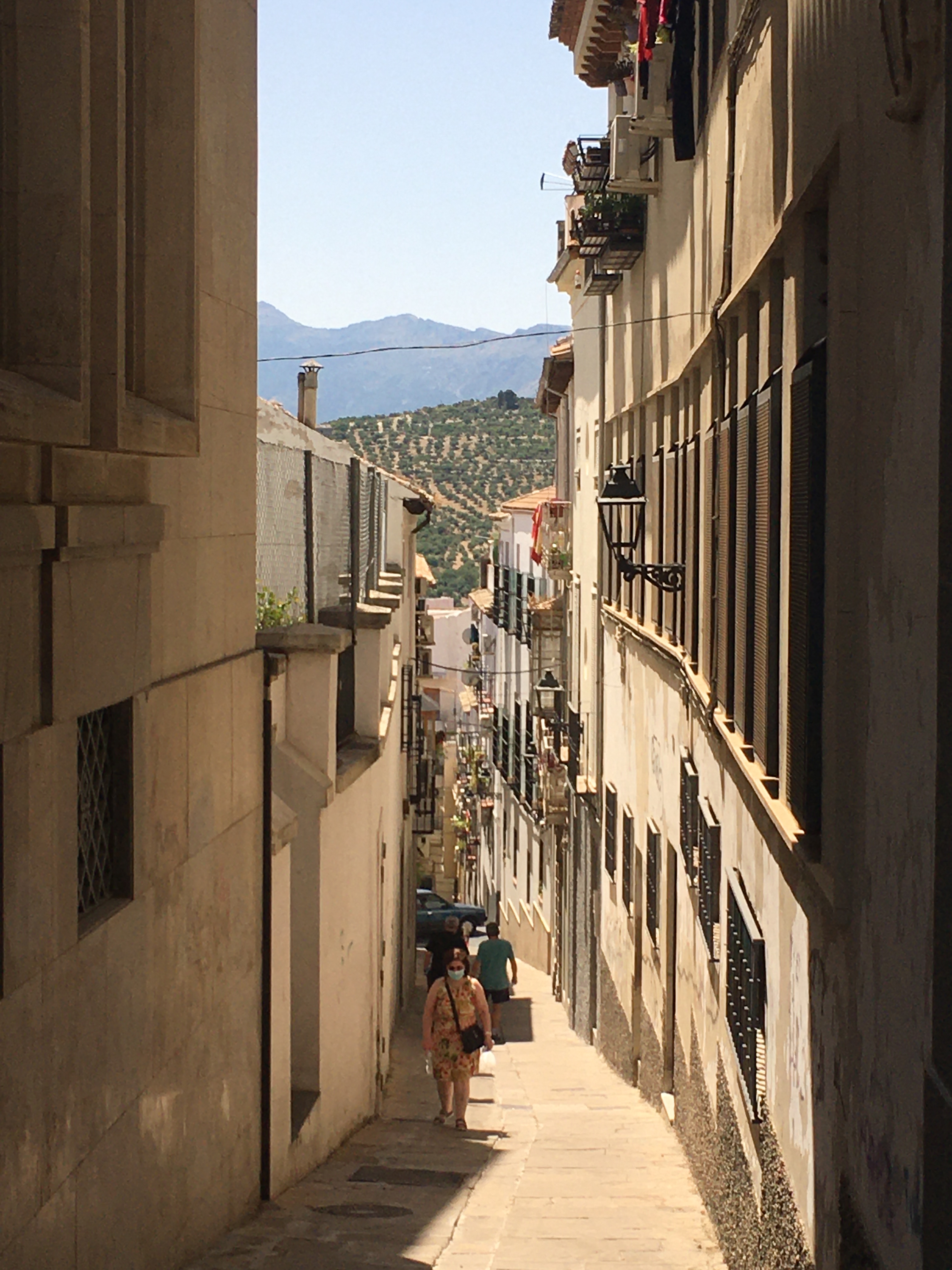It is the beginning of a new decade and I am severely behind in my blog writing and documenting our continual adventure abroad. Although it is already February, I must backtrack a bit in order to cover some of the most relevant experiences we have had.
Unlike last year, we celebrated Christmas right here in Almuñécar and staying in Spain allowed us to slow down a little, as a family, and reintegrate some family traditions that we all missed last year. We bought and decorated a tree, Hadley and Davis built a gingerbread house, and we hung our stocking by the chimney with care. I even convinced Hadley and Quinton to attend midnight mass with me. But Santa came a couple days early this year. We were invited on a walk at a nearby village with some friends and as we strode through the orange groves and along a river, we discovered an abandoned and malnourished puppy, about 10 weeks old, sitting alone up against a tree and crying for attention and love. Unfortunately, it is not uncommon in Spain for people to abandon puppies and even throw them into a river or dumpster. We know several friends who own multiple dogs due to direct rescuing efforts but we never expected to encounter one ourselves. After all our family conversations and decisions about not getting a dog in Spain (despite some strong pleas), one might wonder if the plan was out of our hands.
We scooped up the puppy, took him straight to our local veterinarian and found a temporary home for him since we had plans to travel right after Christmas. Turns out, he is an Andalusian Bodega Terrier (similar to a Jack Russell Terrier), bred to chase rats around wine barrels in cellars. With the help of the vet’s colleague, who cared for him while we traveled, the little guy cleaned up well, was brought back to life with some love, care and food, and we welcomed him into our family when we returned from our travels. Melegis (named after the town in which we found him, Mele for short), while having a lot of hunting instincts and puppy energy, he is also very apt to snuggle under the covers or on our laps and in fine Spanish form, he loves to sleep late and start his day much later than the average puppy. I’m afraid now that owning a small dog is now part of the list of life experiences that I swore would never happen to me along with having twins and driving a minivan.
Before our bonding with Mele began, we headed off on a family adventure to Morocco on the day after Christmas. We traveled for 10 days as a family, starting with a layover in Porto, Portugal, followed by our first night in Marrakech. Culture shock hit immediately as our family was escorted to our Riad (Moroccan hotel) down a dark, dusty, poverty stricken dirt path, surrounded by aromas unlike we had smelled anywhere else. However, as soon as we entered our Riad, we were warmly welcomed by the host and served mint tea and cookie bits. To help ease ourselves into Moroccan culture, we bused to the west coast the very next day and spent two nights in Essaouira. Here, we had our first Moroccan couscous and chicken tagine (the first of many tagine meals actually), took a family surfing lesson, watched amazing sunsets and laughed together until it hurt. It was a great start to our trip, for sure.
On our third day in Morocco, a guide, Khalid, picked us up and drove us East for a four day/three night excursion through the Atlas mountains and the Sahara Desert. We drove through the Tichka Pass, stopped to see the UNESCO World Heritage Site of Aït Benhaddou, where movies like Lawrence of Arabia and The Gladiator were filmed, and made our way through several villages until we reached the Erg Chebbi dunes for a camel trek, about two hours from the Algerian border. After carefully learning how to mount and dismount our camels, which I couldn’t do without screaming due to the unpleasant sensation of nearing a front flip when my camel bent down, we enjoyed a relaxing stroll through the dunes and tried out sandboarding while admiring the sunset. When we reached our traditional Nomad tent site, we were served mint tea and a tagine dinner (yes, tagine again) followed by entertainment of the evening; a drumming session under the stars. Unfortunately, we did not last very long that night due to frigid temperatures and some of us being on the verge of sickness. But it was all very memorable, nonetheless.
We returned by camel early the next morning during a beautiful sunrise over the dunes. After leaving the dunes, our excursion by car continued through more villages, past palm groves and shepherds walking their goats. Khalid took us to a family’s home where they weave and sell carpets and George and I gave the kids a memorable life lesson on unsuccessful bargaining. After leaving their shop with too many carpets, We stopped at the Todra Gorges where we enjoyed a short trek and then spent the night in the Dadès Valley. Our final day took us through the Rose Valley and Skoura where we toured the amazing Kasbah of Amirhidil (one of the largest original homes in Morocco) before returning to Marrakech. Unfortunately, by the time we returned to Marrakech, we were all taken by illness and spent most of our days there in bed. But we managed to get in a guided tour of the Medina, including a visit to the Bahia Palace and a walk by the snake charmers in the main plaza, and Hadley and Davis and I had henna tattoos drawn on our hands. Transition day sent George and the kids back to Spain in time for school to start and brought my friend, Tara, from the States, to join me for a watercolor painting retreat and the rest of my Moroccan adventure.
After a day in Marrakech together, Tara and linked up with a German couple, Hans and Birgitta, who was also attending the painting retreat, and we all drove south together to Taroudant. After navigating an 8 hour drive through the winding and slow but scenic, mountainous road (which only took 3 hours on the return trip), we arrived at our retreat center, a newly built eco lodge owned by a British woman and staffed by a group of gracious Moroccan men and women. This was our base for a week from where we explored the town and painted medina walls, Moroccan men in their traditional cloaks and desert landscapes with reds, greens and blues unique to the culture and the area. We learned additional tools unique to watercolors and to look for shadows in everything! In between our painting sessions, we had a personalized tour of a Berber village where we witnessed a woman making straw mats and Moroccan bread and a Moroccan man throwing pottery after which we were served homemade couscous with veggies in a private home. We were encouraged to eat the couscous with our hands, a messy proposition for sure but Moroccans seemed to have mastered it.
We also had a tour of the private home of Claudio Bravo, a famous and very wealthy Chilean painter who died in 2011 and left his estate to be converted into a hotel and viewed by visitors. The stark contrast between his lavish estate (including his huge mausoleum, in which he was buried) and the surrounding poverty-stricken Moroccan neighborhood was undeniable. But we did enjoy sitting by his meditation pool and painting.
After the painting retreat, Tara and I continued our journey together north with a night in Fes. Fes is another busling Moroccan city with the largest Medina on the African continent and the oldest university in the world. We had a hilarious tour by our guide, Hindi, who cracked jokes constantly, commented numerous times on Tara’s eyes, and helped us spend our money on pottery, beautiful leather bags from the tanneries and fresh cinnamon.
We had front row seating on our bus ride to go further north from Fes to Chefchaouen which lead us from a dry, brown landscape to the lush, green mountains that resembled a cross between Tuscany and Ireland. I couldn’t help notice the increasing Spanish influence as we passed groves of olive trees along the hillsides and noticed that the souvenirs for sale were the same as those in Almuñécar shops. Our final leg of the bus trip took us up and up before we came upon “the blue city” nestled in the mountainside with a bright royal blue color shading the entire town-what a site! Sure enough, after disembarking the bus, we walked through pedestrian streets covered in different shades of blue and eventually, came to our guesthouse and were greeted and checked in by the children (no older than 10). We spent the next couple days hiking up to the Spanish mosque, strolling and painting (many of the shops even sold a vast selection of pigment powders with which to paint), and enjoying some of the best couscous and veggies so far (the carmelized onions and chickpeas did the trick) and of course, more tagine, maximizing our remaining days of leisurely travel.
Finally, it was time to get back to Spanish ground. We made our way there via taxi to the Tangier Med Port, ferry to Algeciras, and bus to Malaga where we pretty much collapsed at the Holiday Inn Express. What a memorable journey with Tara it turned out to be! We appreciated each other as great travel companions as well as fellow artists and students of Moroccan culture. We learned so much, returning with shifted perspectives and vanished stereotypes of the Muslim community (more on that note in the following blog post).

Rescuing Melegis!

He just fit into a wine box!

Our Christmas tree

Christmas day in Almuñécar

Layover in Porto, Portugal

First night in Marrakech

Marrakech

Essaouira

Essaouira

Moroccan flag

Ready to surf

Essaouira

Our surf teachers

Essaouira

Essaouira fish market

UNESCO site: Aït Benhaddou

Air Benhaddou

Hadley and her camel

Sunrise in the dunes

A village in the Sahara Desert

Davis gets a weaving lesson

Berber village

Sunset in Essaouira

Hans and some budding artists

The souk in Fes

Our guide in Fes

Tara in Chefchaouen

Chefchaouen

Bus ride to north

Chefchaouen

Fes

Chefchaouen

The Tanneries in Fes

Driving out to the desert

Essaouira fish market

Atlast mountains

Crossing the Med back to Spain

Atlas mountains

Chefchaouen

Mint tea (Morocco’s Starbucks)

Erg Chebbi Dunes

The Brewsters in the dunes

Sunset in the dunes

In the dunes

Tara arrives in Marrakech!

Moroccan toothpicks

Camel Treking

Henna in Marrakech

Drumming in the dunes

Taroudant view to paint

Goat crossing

Spices in Marrakech

Berber village host

Essaouira

Our teacher’s demo

Berber village home

Bread making in the Berber village

Our Moroccan scarves (hijabs)

Eating couscous by hand

Door in Taroudant

Tagine

An Islamic Minaret

Claudio Bravo’s estate

Painting class

Claudio Bravo’s estate

Claudio Bravo’s garden

Chefchaouen

